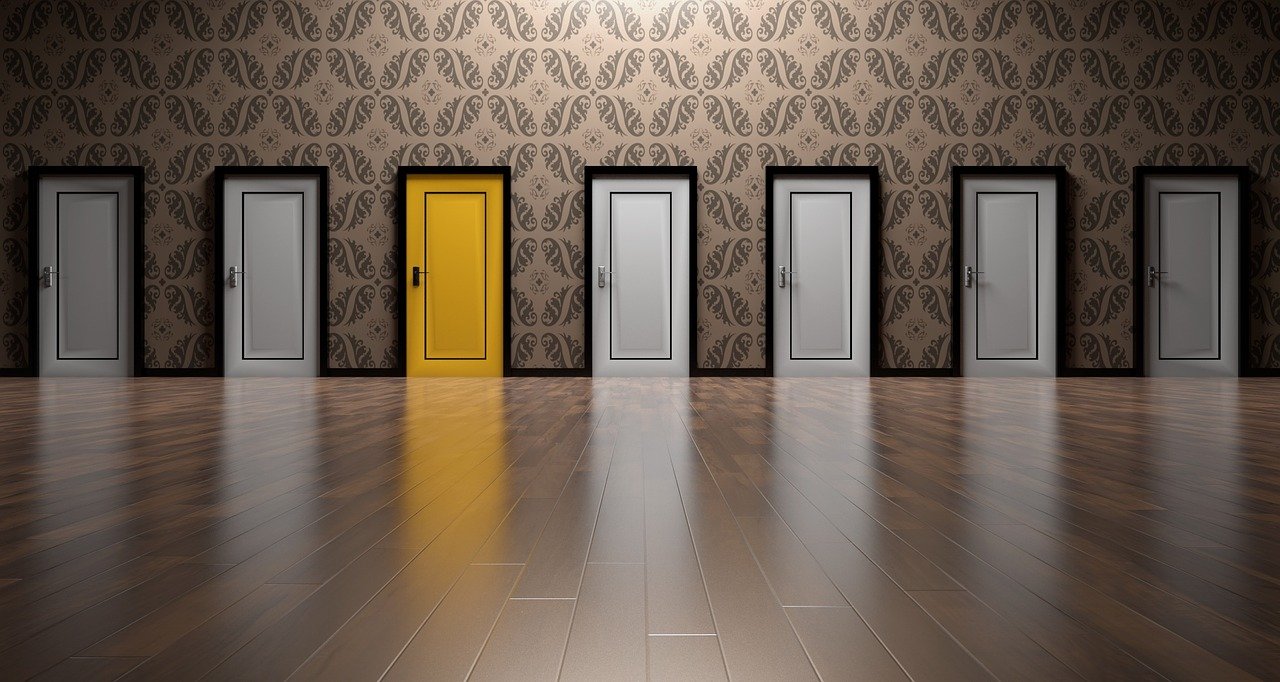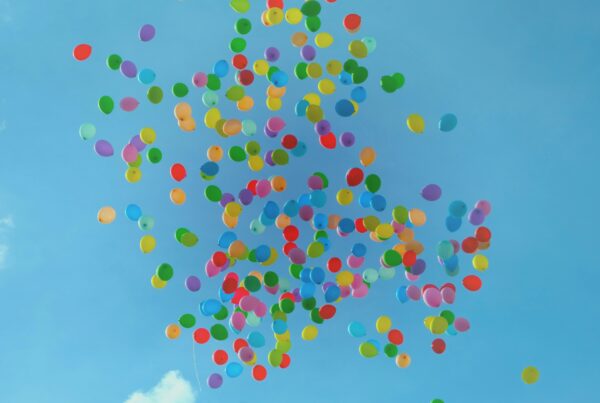
Deciding which way to go in life gives us the freedom to shape our future. Being able to choose between consequences and heading to a chosen future seems charming. But as great as it is, it is not always easy and we are not able to do it perfectly either.
Deciding which way to go in life gives us the freedom to shape our future. Being able to choose between consequences and heading to a chosen future seems charming. But as great as it is, it is not always easy and we are not able to do it perfectly either.

Illustratie: Arek Socha
Every decision we make has consequences that take us in a different direction in life. Even small decisions like where to drink our coffee or which route to take home may bring unexpected experiences. Of course, these do not count as the most difficult decisions in our life. However, ever since I realized how even the simplest decisions have the potential to generate unpredictable opportunities, I started to put more thought into making good decisions about my life. With this, trying to choose the best option has become a whole new process.
One of the things I started to do in this process is making spreadsheets for the important decisions in my life, like choosing which university to study at or where to live. Every spreadsheet has a small description of the general situation, followed by a pros and cons list of the possible options. I try to think of as many advantages and disadvantages as possible to add to my list and make my final decision based on what is on the spreadsheet. Although this might sound like a good way to make the decision with the highest payoff, it still fails many times. It fails because the perfectionist in me can’t stop thinking: what if there is a better option that I am not seeing yet? Or, what if I am falling prey to the heuristics in my mind while creating the list? After thinking about these questions, I sat down and thought about the six most important decisions I’ve made during my 20 years of life. I am satisfied with all of them. Not only am I satisfied, but I’m also grateful because they all brought me so much more than what I expected. But then I wonder, is this really me making good decisions, or is it the cognitive dissonance that tells me so?
“I should try my best to get to know myself better and predict how I would react to certain consequences, but I can’t expect myself to perfectly predict the future.”
After fighting with all these questions, I found some relief by accepting a couple of facts. The first is that our present perception is not the same as how our perception will be in the future, the time when we experience the consequences of our decisions. Our perception and judgment of a situation constantly change as we gain more life experiences. The person we are now and the person we will be in a week are different people. Therefore, I don’t have to (and can’t) perfectly predict how I will experience the consequences of a decision that I make today. I should try my best to get to know myself better and predict how I would react to certain consequences, but I can’t expect myself to perfectly predict the future.
Moreover, the second one is that I started looking at cognitive dissonance from a different perspective. Cognitive dissonance is the discomfort we feel when we realize a conflict between our attitudes and behavior. It seems dangerous because, in order to reduce this discomfort, we usually choose the path of changing our attitudes, rather than our behaviors. So it affects our thoughts, values, and decision-making. My life changed irreversibly ever since I learned about it and ‘Is it me or is it the cognitive dissonance?’ is a question that haunts me in every area of my life. But recently, I decided to use it in my own favor. For situations in which there is only a slight difference between options, I rely on the idea that my cognitive dissonance will make me happy in the future with whatever decision I make now. It will justify the option that I chose in order to keep me happy and satisfied with my choice. Therefore, I don’t need to overthink these decisions because I can simply let the cognitive dissonance, the sweet present of evolution, make me happy with the result.
“getting to know ourselves and our minds better would help us differentiate between what is ‘the self’ and what is the biased thought that is trying to influence our mind”
Lastly, besides accepting these two facts, I am trying not to conform to biases and heuristics that might easily influence my mind. In addition to being skeptical about things, building a strong self-identity is also a key in this battle against biases. Although it is almost impossible to be an unbiased person, I believe that getting to know ourselves and our minds better would help us differentiate between what is ‘the self’ and what is the biased thought that is trying to influence our mind.
All in all, the common point of these facts I’ve accepted, is the realization that I am a human. I accepted that being irrational is part of being a human and expecting the perfect is quite unrealistic. It may seem like we are able to shape our future by choosing between consequences, but being human definitely has its limits. Aiming for our best capacity in the limits of the human mind would be more realistic than expecting the perfect decision-making.<<
Every decision we make has consequences that take us in a different direction in life. Even small decisions like where to drink our coffee or which route to take home may bring unexpected experiences. Of course, these do not count as the most difficult decisions in our life. However, ever since I realized how even the simplest decisions have the potential to generate unpredictable opportunities, I started to put more thought into making good decisions about my life. With this, trying to choose the best option has become a whole new process.
One of the things I started to do in this process is making spreadsheets for the important decisions in my life, like choosing which university to study at or where to live. Every spreadsheet has a small description of the general situation, followed by a pros and cons list of the possible options. I try to think of as many advantages and disadvantages as possible to add to my list and make my final decision based on what is on the spreadsheet. Although this might sound like a good way to make the decision with the highest payoff, it still fails many times. It fails because the perfectionist in me can’t stop thinking: what if there is a better option that I am not seeing yet? Or, what if I am falling prey to the heuristics in my mind while creating the list? After thinking about these questions, I sat down and thought about the six most important decisions I’ve made during my 20 years of life. I am satisfied with all of them. Not only am I satisfied, but I’m also grateful because they all brought me so much more than what I expected. But then I wonder, is this really me making good decisions, or is it the cognitive dissonance that tells me so?
“I should try my best to get to know myself better and predict how I would react to certain consequences, but I can’t expect myself to perfectly predict the future.”
After fighting with all these questions, I found some relief by accepting a couple of facts. The first is that our present perception is not the same as how our perception will be in the future, the time when we experience the consequences of our decisions. Our perception and judgment of a situation constantly change as we gain more life experiences. The person we are now and the person we will be in a week are different people. Therefore, I don’t have to (and can’t) perfectly predict how I will experience the consequences of a decision that I make today. I should try my best to get to know myself better and predict how I would react to certain consequences, but I can’t expect myself to perfectly predict the future.
Moreover, the second one is that I started looking at cognitive dissonance from a different perspective. Cognitive dissonance is the discomfort we feel when we realize a conflict between our attitudes and behavior. It seems dangerous because, in order to reduce this discomfort, we usually choose the path of changing our attitudes, rather than our behaviors. So it affects our thoughts, values, and decision-making. My life changed irreversibly ever since I learned about it and ‘Is it me or is it the cognitive dissonance?’ is a question that haunts me in every area of my life. But recently, I decided to use it in my own favor. For situations in which there is only a slight difference between options, I rely on the idea that my cognitive dissonance will make me happy in the future with whatever decision I make now. It will justify the option that I chose in order to keep me happy and satisfied with my choice. Therefore, I don’t need to overthink these decisions because I can simply let the cognitive dissonance, the sweet present of evolution, make me happy with the result.
“getting to know ourselves and our minds better would help us differentiate between what is ‘the self’ and what is the biased thought that is trying to influence our mind”
Lastly, besides accepting these two facts, I am trying not to conform to biases and heuristics that might easily influence my mind. In addition to being skeptical about things, building a strong self-identity is also a key in this battle against biases. Although it is almost impossible to be an unbiased person, I believe that getting to know ourselves and our minds better would help us differentiate between what is ‘the self’ and what is the biased thought that is trying to influence our mind.
All in all, the common point of these facts I’ve accepted, is the realization that I am a human. I accepted that being irrational is part of being a human and expecting the perfect is quite unrealistic. It may seem like we are able to shape our future by choosing between consequences, but being human definitely has its limits. Aiming for our best capacity in the limits of the human mind would be more realistic than expecting the perfect decision-making.<<



